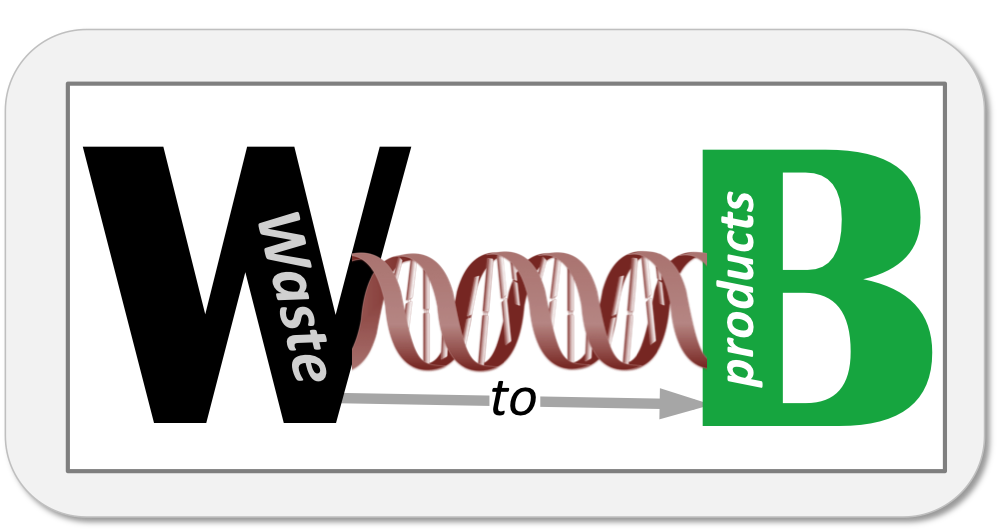Research
Waste to Bioproducts-Lab research mostly focuses on:
• Polyhydroxyalkanoates go to PHAs
• Bioethanol go to Bioethanol
• Biohydrogen and biogas go to BioH-BGas
Polyhydroxyalkanoates (PHAs)
PHAs are a family of biodegradable intracellular polyesters that a number of Eubacteria and Archaea can accumulate as energy and carbon storage. Due to their plastic-like properties and complete biodegradability, PHAs attracted the attention of many industries. Nevertheless, the large scale production of PHAs depends on a number of critical factors, such as substrates cost, microbial PHAs rate and yield, downstream processing, and more generally, whole process development.
The carbon source can account for up to 50% of the total cost, so that the economic feasibility of bulk PHAs production requires the development of efficient biotechnological processes using low-cost carbon sources. In this perspective, industrial by-products provide the advantage of simultaneously saving disposal costs and the production of value-added goods.
Waste to Products-Lab strives to develop efficient microbes able to process organic waste streams (ie, cheese whey, rice by-products, dates waste, lignocellulosic hydrolysates, slaughterhouse by-products) into PHAs at high speed and yields.
Selected projects
*EU-‘WHEYPOL: Dairy industry waste as source for sustainable polymeric material production’, 2001-2004
*EU-‘ANIMPOL: Biotechnological conversion of carbon containing wastes for eco-efficient production of high added value products’, 2010-2012
*UNIPD-‘Polyhydroxyalkanoates (PHAs) production from lipids containing agri-food wastes’, 2013-2015
Bioethanol
Bioethanol is considered one of the most promising biofuels. One of the key-players in ethanol production is Saccharomyces cerevisiae, the preferred microorganism for the production of bioethanol from biomass. Industrial strain development for ethanol from corn and sugarcane generally depends on the historical know-how from alcohol distilleries and high gravity beer brewing. Nevertheless, the recent development of biotechnological platforms for the production of second generation biofuels and green chemicals from lignocellulose expose yeast to different stress challenges and environments. The industrial need for increased productivity, wider substrate range utilization, and production of novel chemicals increased the interest in further extending the use of current industrial strains by exploiting the immense, and still unknown, potential of natural yeast.
Our research aims at developing novel, cost-effective yeast strains for the conversion of by-products into bioethanol.
Selected projects
*Italy/Southafrica bilateral joint research project - ‘Development of robust yeast strains for bioethanol production from starchy and cellulosic plant biomass’ 2011-2013
*UNIPD - ‘Engineering Consolidated Bioprocessing yeasts for the one-step conversion of cellulosic substrates into bioethanol’ 2015-2018
*Italy/Southafrica bilateral joint research project - ‘BIO-waste-to-ENERGY’ 2018-2021
Biohydrogen and biogas
Biogas is the product of a biologically mediated process, which is named Anaerobic Digestion. Biogas primarily consists of methane (CH4) with a range of 50–70% and carbon dioxide (CO2) at levels of 30-50%. Biogas production is an established sustainable process for simultaneous generation of renewable energy and treatment of organic waste. During anaerobic digestion, hydrogen is microbially produced and can be stored to be used as promising gaseous biofuel.
Although biogas production can be considered a mature technology, a number of engineering and microbiological issues still affect the production of biogas at high and stable rates as well as yields.
The perspective of an industrial application of hydrogen produced by fermentative process from organic waste is far to be realized as technical and economical limitations have still to be solved. Low yields, lack of industrially robust organisms, and high cost of feedstock are the major limiting factors and could be considered as scientific challenges towards the definition of successful industrial scale hydrogen process production from organic wastes.
Waste to Products-Lab is used to characterize the microbial populations of both biogas and biohydrogen production from a cluster of organic waste by-products. Moreover, the research aims at the selection and the development of microbial inocula to be used at industrial scale for the production of biogas and biohydrogen from the organic fraction of municipal solid waste (OFMSW), as model substrate.
Selected projects
*UNIPD – ‘Selection and characterization of microbial inoculants for the optimization of biological hydrogen’, 2011-2013
*Cariverona Foundation – ‘BIOGAS-plus APP: development of novel strategies to optimize renewable energy production from agricultural and food waste streams’, 2020-2023





